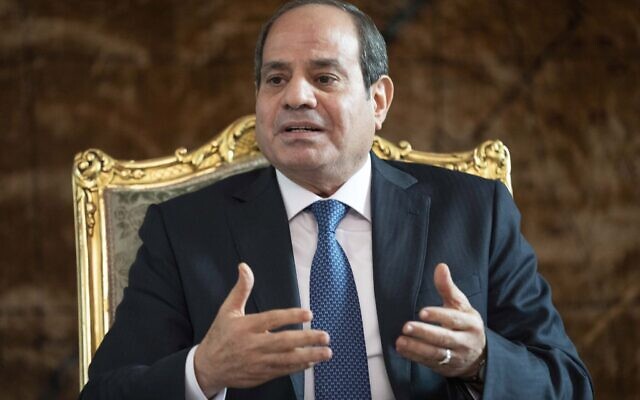Egyptian intelligence officials met with Israeli counterparts this Friday to discuss Egypt’s new peace proposal for Gaza war.
This Friday, the head of Egypt’s Intelligence Organization Abbas Kamel traveled to Israel to discuss the ceasefire in Gaza and the exchange of prisoners with a new proposed plan.
According to Israeli media, Kamel met with Mossad chief David Barnia and Tzachi Hangbi, head of Israel’s National Security Council to present and negotiate the new peace proposal.
Egypt’s new proposal includes the postponement of Israel’s planned attack on the city of Rafah, as well as Israel’s withdrawal from the Gaza Strip, freedom of movement on the main roads of Gaza, and the return of Palestinian refugees to their homes, in exchange for Hamas releasing all the Israeli prisoners.
A one-year ceasefire is also included in this proposal. Egypt has proposed that based on this new peace plan, the exchange of prisoners take place in several stages. According to previous reports, Hamas has demanded the release of 50 Palestinian prisoners for each Israeli soldier and 30 Palestinian prisoners for each Israeli non-combatant to be released.
Israel, however, has not yet achieved a conclusion on whether to agree with the exchange plan of any kind or not. On Thursday, Hebrew media reported that Shin Bet chief Ronen Bar and the Israeli military’s prisoner envoy to the talks, Nitzan Alon, presented ideas to the war cabinet on how Israel should make compromises to secure a prisoners’ swap deal with Hamas.
Why Egypt refuses to engage more in the conflict as Israel and US demand?
Since the beginning of the Gaza war on October 7, Israel and the United States have asked Egypt several to agree to be part of the administration body that is expected to run Gaza when the war ends.
And these efforts have not stopped. According to a report by the Middle East Monitor, “Israeli and American attempts to get Egypt to have a role in running the Gaza Strip continue.”
But why Egyptian President Abdel Fattah Sisi is so reluctant to accept the repeated requests to accept the responsibility of the administration of Gaza after the war? The first reason emanated from Sisi’s caution against the consequences of bearing the burden of running a densely populated region with 2.3 million people, which has its own livelihood and humanitarian needs.
Another reason is that Egypt is afraid of the possibility of getting involved in the Gaza crisis and facing the Palestinian resistance factions who insist that the administration of the Gaza Strip is an internal Palestinian matter.
The Egyptian diplomatic establishment also believes that dismissing any role for the Palestinian Authority on a post-war Gaza and the lack of a framework for a comprehensive political solution to the Palestinian-Israeli conflict means is no more than a trap. This is because according to Sisi, the current proposal is just an immediate and temporary way out for the Israeli regime from its deadlock in Gaza after about 7 months of war without results.
In addition, Sisi believes that Egypt’s participation in the administration of the Gaza Strip strengthens the idea of dividing Palestine and deepens the conflict between Gaza and the West Bank, an issue that Cairo does not approve of because of the threat it poses to the comprehensive solution to the Palestinian issue.
Last but not least, the influential Egyptian authorities also believe that accepting any administrative role in Gaza based on the arrangements to which Israel has been also a party, provides enough ground for accusing Egypt of complicity and participation in the Gaza war.








